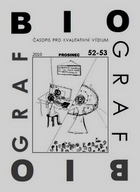
KONOPÁSEK, Z. (2010): V čem spočívá pravda náboženské skutečnosti? Sociologický pohled na mariánská zjevení a démonické posedlosti. Biograf (52-53): 89-101
::::V tomto textu shrnuji východiska a závěry tříletého výzkumného projektu "Jak se dělá náboženská skutečnost: Zjevení a posedlost démony jako praktický a kolektivní výkon" (GAČR 403/08/1758). Opírám se při tom o dosud napsané články, většinou spolu s Janem Palečkem. Stručně: Spojujícím momentem různých našich analýz je mnohotvárnost a praktická různorodost toho, čemu říkáme náboženská víra. Inspirovali jsme se přístupy z oboru současných vědních studií a pokoušíme se o jakousi neredukcionistickou sociologii náboženství. Zvolili jsme za předmět studia podivné, nevšední a v mnoha ohledech sporné situace (zjevení, posedlost), které rozdělují nejen věřící a nevěřící, ale i mnohé věřící navzájem, a které nám umožňují zachytit i tak dlouhodobě a dokonale sedimentovanou skutečnost, jakou je skutečnost náboženská, v pohybu a rozpolcení.
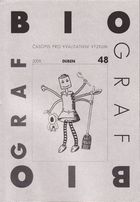
KONOPÁSEK, Z. (2009): Zapomeňte na pouhé transkripty: Atlas.ti, šestá verze. Biograf, (48): 95-113
::::Na přelomu února a března 2009 vyšla nová verze programu pro kvalitativní analýzu Atlas.ti. V této obsáhlé recenzi podrobně rozebírám zejména dvě klíčové inovace: (1) podporu PDF formátů; a (2) možnost synchronizovat nahrávku s jejím přepisem. První z těchto inovací otevírá prostor pro snadnou práci s odbornou literaturou, která je ve velkém množství dostupná právě ve formátu PDF. Podpora formátu PDF zároveň dovoluje načítat do Atlasu prakticky jakýkoli dokument z jakéhokoli programu, protože takřka vše, s čím na počítači pracujeme, lze dnes snadno a bez ztráty podstatných informací do formátu PDF převést. Druhá ze zmíněných inovací poskytuje příležitost k docela jinému zacházení s transkripty, než jsme dosud – podle mne ke své vlastní škodě – zvyklí. Nyní můžeme vyrábět přepisy, které mluví. Je také úzce svázána s možností pořizovat přepisy přímo v programu Atlas.ti.
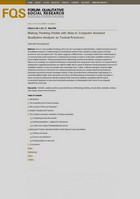
KONOPÁSEK, Z. (2008): Making thinking visible with Atlas.ti: Computer assisted qualitative analysis as textual practices. Forum Qualitative Sozialforschung / Forum: Qualitative Social Research, 9 (2): 62 odst., čl. 12. Dostupné na adrese http://nbn-resolving.de/urn:nbn:de:0114-fqs0802124
::::How is a new quality of reading, which we call "sociological understanding", created during the process of qualitative analysis? A methodological (conventional) answer to this question usually speaks of mental processes and conceptual work. This paper suggests a different view—sociological rather than methodological; or more precisely a view inspired by a contemporary sociology of science. It describes qualitative analysis as a set of material practices. Taking grounded theory methodology and the work with the computer programme Atlas.ti as an example, it is argued that thinking is inseparable from doing even in this domain. It is argued that by adopting the suggested perspective we might be better able to speak of otherwise hardly graspable processes of qualitative analysis in more accountable and instructable ways. Further, software packages would be better understood not only as "mere tools" for coding and retrieving, but also as complex virtual environments for embodied and practice-based knowledge making. Finally, grounded theory methodology might appear in a somewhat different light: when described not in terms of methodological or theoretical concepts but rather in terms of what we practically do with the analysed data, it becomes perfectly compatible with the radical constructivist, textualist, or even post-structuralist paradigms of interpretation (from which it has allegedly departed by a long way). (Reprinted from Historical Social Research 2007)
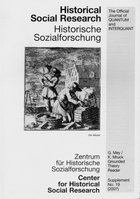
KONOPÁSEK, Z. (2007): Making thinking visible with Atlas.ti: Computer assisted qualitative analysis as textual practices. Historical Social Research, Supplement: Grounded Theory Reader (edited by Günter Mey and Katja Mruck), 19: 276-298
::::Článek se zabývá tím, jak se vlastně objevuje nová kvalita čtení, které běžně říkáme "sociologické porozumění". Vyhýbá se přitom zaužívanému metodologickému pohledu na věc, podle kterého zde hrají hlavní úlohu myšlenkové procesy a konceptuální práce. Razím zde jiný pohled, ne metodologický, ale sociologický; přesněji vzato, pohled inspirovaný současnými vědními studii (STS). Líčím kvalitativní analýzu jako soubor materiálních praktik. Na příkladu "empiricky podložené teorie" (grounded theory) a práce s počítačovým programem Atlas.ti ukazuji, že a jak je analytické uvažování neoddělitelné od praktického konání, od nejrůznějších manipulací s textem. Tvrdím, že pokud takový úhel pohledu přijmeme, lépe budeme schopni o jinak dost neuchopitelných "metodách kvalitativní analýzy" mluvit vykazatelným a návodným způsobem. Počítačové programy pro kvalitativní analýzu by z tohoto hlediska také nemusely být chápány jako "pouhé nástroje" pro kódování a vyhledávání, ale jako komplexní virtuální prostředí pro vtělené a prakticky založené poznávání. V neposlední řadě potom můžeme vidět v jiném světle i metodologii vytváření "empiricky podložené teorie": pokud ji přestaneme popisovat metodologicky-teoreticky, ale spíš jako postupy, jimiž praktického zacházení s texty dat, stane se tato údajně konzervativní a beznadějně moderní metodologická škola krásně slučitelná s radikálním konstruktivismem či post-strukturalismem.
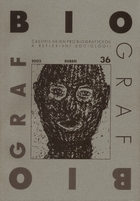
DAVID, G. (2005): Žertování o cenách v arabských koloniálech: Jak mohou citlivá témata proměňovat mezi-skupinové vztahy. Biograf , (36): 25-54 - přeložil Zdeněk Konopásek
, (36): 25-54 - přeložil Zdeněk Konopásek
::::Tensions between small immigrant-owned stores and their African-American customers are frequently cited as a major problem in large urban cities in the United States. Whereas most research has focused on the problematic nature of this relationship, the research reported in this paper attempts to focus on the positive. Rather than being plagued by tensions and problematic encounters, this paper asserts that interactions in small "convenience stores" are largely unproblematic. This paper examines the occurrence of unproblematic cross-cultural encounters as a collaborative effort between customer and worker. Specifically, this paper demonstrates how humor plays an important role in the formation of positive relationships through the analysis of "price humor". While high prices have been cited as a source of tension, this paper shows how sensitive topics, such as price, can be used by interactants to build rapport across the counter.
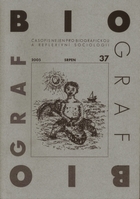
KONOPÁSEK, Z. (2005): Aby myšlení bylo dobře vidět: Nad novou verzí programu Atlas.ti. Biograf , (37): 89-109
, (37): 89-109
::::V návaznosti na recenzi z roku 1997 rozebírám novou verzi programu pro kvalitativní analýzu dat Atlas.ti (v. 5). Probírám postupně, pro koho je takový nástroj vhodný, jaké jsou základní principy analytické práce s programem a co je v této verzi programu nového. Zmiňuji také, co mi stále v programu Atlas.ti chybí a zda má smysl upgradovat z předchozí verze.
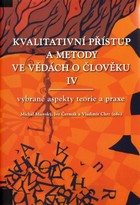
KONOPÁSEK, Z. (2005): Co znamená interpretovat text? In: M. Miovský, I. Čermák & V. Chrz, eds.: Kvalitativní přístup a metody ve vědách o člověku - IV: Vybrané aspekty teorie a praxe. Olomouc: FF UP. Str. 85-95
::::Jak analyticky vyložit text sebraných dat? Běžně se interpretace chápe jako myšlenkový postup. Snažíme se něco pojmově zpracovat; nově nahlédnout a uchopit. Takhle uvažují třeba filozofové a metodologové. Ve svém příspěvku půjdu jinudy. Ukážu interpretaci ne tolik jako mentální procesy (čtení), ale spíš jako pozorovatelné a vykazatelné materiální praktiky (psaní). Předvedu například, že co bereme jako „nové čtení textu“, se ve skutečnosti odehrává jako „čtení nových a nových textů“ – textů, které vytváříme analytickou prací s kvalitativními daty. Umění vyložit text vypadá z tohoto opomíjeného pohledu možná méně vznešeně než v metodologických pojednáních, ale o to přístupněji, použitelněji a obhajitelněji.
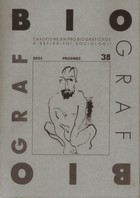
KONOPÁSEK, Z. (2005): Nesnáze s etnometodologií. Biograf , (38): 85-109
, (38): 85-109
::::
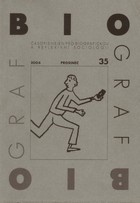
GUILLEMIN, M. / GILLAM, L. (2004): Etika, reflexivita a "eticky důležité okamžiky" ve výzkumu. Biograf , (35): 11-31 - přeložili Zdeněk Konopásek a Jiřina Zachová
, (35): 11-31 - přeložili Zdeněk Konopásek a Jiřina Zachová
::::Ethical tensions are part of the everyday practice of doing research—all kinds of research. How do researchers deal with ethical problems that arise in the practice of their research, and are there conceptual frameworks that they can draw on to assist them? This article examines the relationship between reflexivity and research ethics. It focuses on what constitutes ethical research practice in qualitative research and how researchers achieve ethical research practice. As a framework for thinking through these issues, the authors distinguish two different dimensions of ethics in research, which they term procedural ethics and "ethics in practice". The relationship between them and the impact that each has on the actual doing of research are examined. The article then draws on the notion of reflexivity as a helpful way of understanding both the nature of ethics in qualitative research and how ethical practice in research can be achieved.
Přeloženo z originálu GUILLEMIN, M. / GILLAM, L. (2004): Ethics, reflexivity, and "ethically important moments" in research. Qualitative Inquiry, 10 (2): 261-280
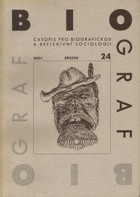
FINE, G.A. (2001): Jak se dělá příroda a ochočuje divočina: Problém "vysbírávání" lesů v houbařské kultuře. Biograf , (24): 29-56 - přeložil Zdeněk Konopásek
, (24): 29-56 - přeložil Zdeněk Konopásek
::::Although nature often has been treated as an unproblematic reality, I argue for treating it as a contested concept, suggesting that "nature" is a cultural construction. Drawing on interactionist and ecological theory, I claim that the creation of social problems involving the environment is inevitably grounded in cultural choices. Through a set of ideological structures (a protectionist vision, an organic vision, and a humanistic vision), social actors develop templates for understanding the proper relationship between humans and nature. Based on an ethnography of mushroom collecting, I contend that these models lead us to experience nature through cultural eyes - wishing to be away from civilization, to be at one with nature, and to engage in the pragmatic use of nature for personal ends. Conflicting stances toward nature account for debate over the moral acceptability of the commercial collection of mushrooms and the "problem" of overpick. Templates of human-environmental interaction, leading to models for experiencing the wild, provide the basis for understanding the conditions under which environmental change is defined as a social problem.
FINE, G.A. (1997): Naturework and the taming of the wild: The problem of "overpick" in the culture of mushroomers. Social Problems, 44 (1): 68-88

 ? - recenze vyjde v časopise Biograf
? - recenze vyjde v časopise Biograf
 se objevily informace o tom, co lze snad prý během března čekat v nové, sedmé verzi mého oblíbeného analytického programu
se objevily informace o tom, co lze snad prý během března čekat v nové, sedmé verzi mého oblíbeného analytického programu









